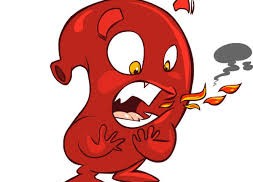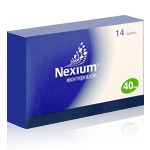Understanding and Easing the Burn: Living with Gastroesophageal Reflux Disease


What Is Gastroesophageal Reflux Disease and Why Should You Care?
Question: Have you ever felt a burning sensation in your chest after eating?
Answer: That may be a sign of gastroesophageal reflux disease, a long-lasting condition where acid from the stomach flows backward into the food pipe (also called the esophagus). This causes discomfort and other unpleasant symptoms, especially after meals or when lying down.
What to Know:
- Gastroesophageal reflux disease is more than just occasional heartburn.
- It can disturb sleep, make eating uncomfortable, and affect daily life.
- If not treated, it may lead to more serious problems with the throat or stomach.
- It affects both adults and children across the world.
Signs and Symptoms That Should Not Be Ignored
The symptoms of gastroesophageal reflux disease go beyond just stomach problems. They can show up in many ways and often become worse if not addressed.
Common Symptoms Include:
- A burning feeling in the chest, especially after eating or at night.
- Sour or bitter-tasting liquid rising into the mouth.
- A dry cough or sore throat that keeps coming back.
- A feeling that food is stuck or hard to swallow.
- Chest pain that may feel like tightness or pressure.
What Causes Gastroesophageal Reflux Disease?
This condition starts when the muscle that connects the stomach to the food pipe does not close properly. When that happens, stomach acid can move upward, causing irritation and pain.
Possible Causes Include:
- Eating large meals or lying down right after eating.
- Extra weight putting pressure on the stomach.
- Pregnancy, which can push the stomach upward.
- Foods that trigger acid problems such as fried, spicy, or fatty meals.
- Drinks like coffee, soda, and alcohol that relax the stomach muscle.
- Smoking, which weakens the muscle between the stomach and food pipe.
How This Condition Affects Everyday Life
Living with gastroesophageal reflux disease can be frustrating and painful. It often gets in the way of eating, sleeping, and enjoying normal activities.
Daily Struggles May Include:
- Waking up during the night with a sour taste or chest pain.
- Avoiding favorite foods that make symptoms worse.
- Feeling tired from poor sleep caused by nighttime discomfort.
- Stress or anxiety about when symptoms will return.
- Difficulty focusing at work or in social settings due to discomfort.
Getting Checked by a Doctor
If you think you may have this condition, a visit to a doctor is important. The doctor will listen to your symptoms and may run a few simple tests to be sure.
Tests Might Include:
- A camera test (called an endoscopy) to look at the throat and stomach.
- A test to check the amount of acid that moves up into the food pipe.
- A swallowing test to see how well the muscles in your food pipe work.
These tests help the doctor find the best way to treat your condition before it becomes more serious.
Simple Changes That Can Help
The good news is that making a few changes in your daily routine can often reduce or stop the symptoms.
Helpful Tips:
- Eat smaller meals more often instead of large meals.
- Wait two to three hours after eating before lying down.
- Raise the head of your bed by a few inches to stop acid from rising at night.
- Avoid foods that cause problems, such as fried, spicy, or tomato-based meals.
- Try to keep a healthy weight and avoid tight clothing that presses on the stomach.
- Quit smoking and limit drinks that may make the condition worse.
Nexium (Esomeprazole): A Helpful Treatment for Relief
Question: What if changes in eating and habits are not enough to fix the problem?
Answer: If lifestyle changes do not provide full relief, medicines like Nexium, also known as Esomeprazole, can help.
Nexium works by lowering the amount of acid the stomach makes. This allows the food pipe to heal and reduces the pain and burning sensation.
Why Nexium Can Help:
- It is usually taken once a day before eating.
- It helps reduce heartburn and stops acid from moving upward.
- It gives long-lasting relief and can heal damage to the food pipe.
- It is available in stores or by prescription.
- It is safe for many people but should be taken under a doctor’s guidance.
Nexium has helped many people live more comfortably with this condition. If you have frequent symptoms, your doctor may suggest using Nexium for a few weeks to help your body heal. It can bring real comfort and make daily life easier again.
Gastroesophageal reflux disease can be hard to live with, but it can be managed. Understanding what causes the condition, making better food and lifestyle choices, and using safe treatments when needed can bring real relief. With the right care, you can enjoy meals again, sleep better at night, and feel more like yourself every day.
Article Post: Editorial Team of RXShop.md
(Updated at Jun 7 / 2025)

